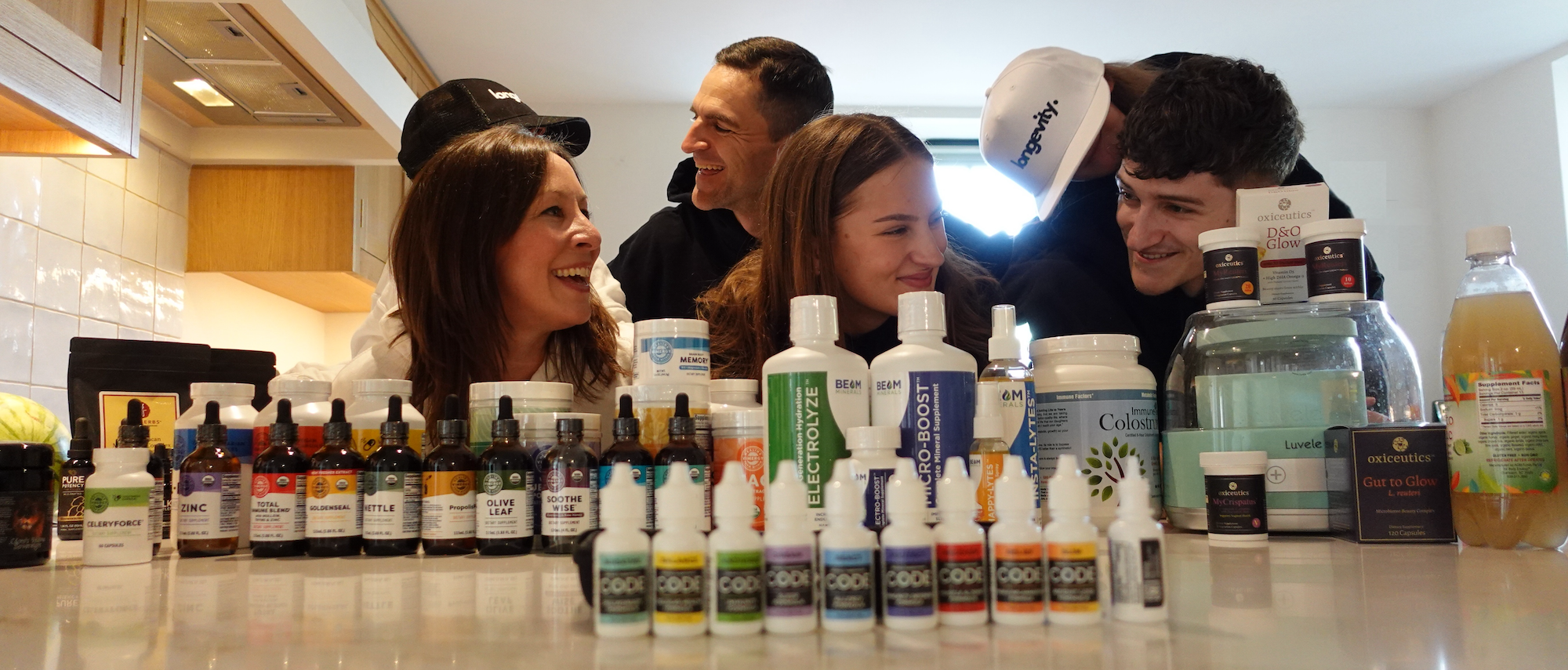1. Get 7-8 hours of uninterrupted sleep, every night. If this is something you struggle with, you might want to check out our Sleep Aid Ultra supplement
2. Reduce your stress and anxiety. There are many lifestyle changes you can make to combat this, such as meditation. You can also try supplementing with our Serenity Anti-Stress Support or 5 HTP products
3. Increase your Vitamin D levels - 30 minutes in the direct sunlight (with the majority of your skin exposed) can provide up to 25,000 IU of Vitamin D. If you live in a country that lacks strong sunshine, or it’s the winter, then Vitamin D supplementation, as found in our All in one Multivitamin Formula, is beneficial
4. Eat a healthy diet with plenty of fruits and vegetables, ideally organic. Eating lots of fresh produce will help to lower your body fat percentage, which in turn can strengthen your immune system. Fruit and vegetables are also packed with vitamins and minerals (especially zinc) that are vital to maintain a healthy body and immune system.
5. Cut out smoking recreational drugs, such as Marijuana - the smoke is not good for your immune system (see next point)
6. Stop smoking tobacco. Smoking compromises the balance of your immune system and increases the risk of contracting autoimmune disorders, such as COPD
7. Do more exercise. Even just a 20 minute daily walk has been proven to help strengthen the immune system
8. Consume less alcohol. Excessive drinking has been shown to affect the immune system. Alcohol also contains a lot of sugar (alcohol is made from sugars) so cutting down will also help with weight management.
9. Support your immune system with the vital nutrients and minerals it needs to get back to peak performance:
Elderberry
Elderberry flowers, berries and leaves contain lots of antioxidants (anthocyanins, phenolics & flavonoids) that can help balance the immune system and lower oxidative stress [11].
Although Elderberry grows across North Africa, Asia and America, it is native to Europe and the most common variety is the black elderberry (Sambucus nigra) or European elder.
Traditionally used in folk medicine, the leaves and flowers have been used as natural remedies to help reduce inflammation, pain and swelling.
The bark was also prepared to help with bowel movements and urination.
The berries (fresh or dried) are believed to help relieve toothache, lower back pain, headaches, respiratory infections and constipation.
John Evelyn (a british researcher in the 17th century) said: “If the medicinal properties of its leaves, bark and berries (elderberry) were fully known, I cannot tell what our country man could ail for which he might not fetch a remedy, either for sickness or wounds.”
Its use has been widespread throughout history, with elderberry-based medication records dating as far back as Ancient Egypt.
Since then, substantial amounts of studies have been conducted on elderberry and its ability to help with a wide range of ailments.
A study on rats showed elderberry polyphenols supported immune defense by increasing the number of white blood cells [12].
Air traveling puts the immune system under enormous stress. Those who fly frequently (and especially long distance) are more susceptible to the common cold.
A double-blind placebo-controlled study on air travelers showed that Elderberry supplementation reduced cold symptoms and duration [13].
Echinacea
There are 9 species of the echinacea plant, from which extracts have been used in traditional medicine to help treat the common cold, bacterial infections and blood poisoning [14].
The active compounds in Echinacea help to stimulate and/or strengthen the immune system [15].
North American Indians primarily used echinacea as medicine. They would gargle with it for sore gums and toothache, use poultices for snakebite, stings, bites and wounds, and would they would also drink concoctions with echinacea in to help treat measles, mumps, arthritis, colds and smallpox.
In the 1870’s, Dr. H C F Meyer concocted a herbal medicine with echinacea, which he patented. He described it as the ultimate cure for snakebites and a blood purifier.
Since then, in the 1900’s echinacea was accepted by North America Herbalists to help treat most of the same ailments it had been used for in traditional native medicine.
There have been many studies on this plant and how it may help your immune system deal with viruses and infections, helping you to recover faster from the illness [16].
Vitamin C
Vitamin C plays a key role in immune-modulating and is essential for an adequate immune response against pathogens, to avoid excessive damage to the host [17].
Vitamin E
Animal and human studies have shown the immunoregulatory role of Vitamin E that is associated with reducing the risk for infectious diseases, such as respiratory infections, Streptococcus pneumonia and influenza to name a couple [18].
Vitamin B6
Vitamin B6 has been shown to help regulate immune responses that are associated with a wide range of problems, including inflammation [19].
A study showed that Vitamin B6 deficiency influenced the immune system in 3 key ways [20]:














